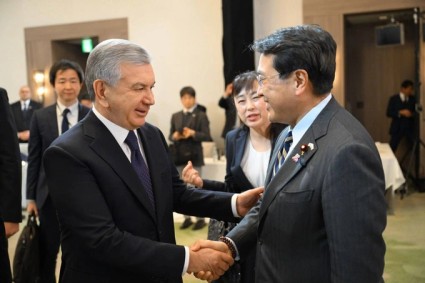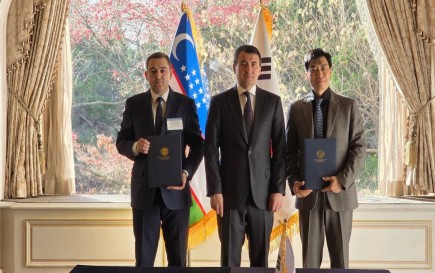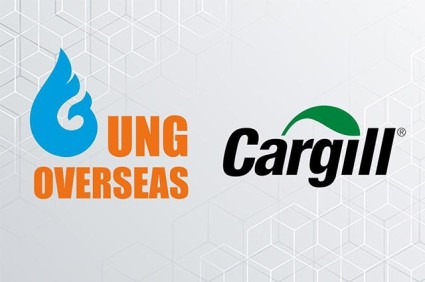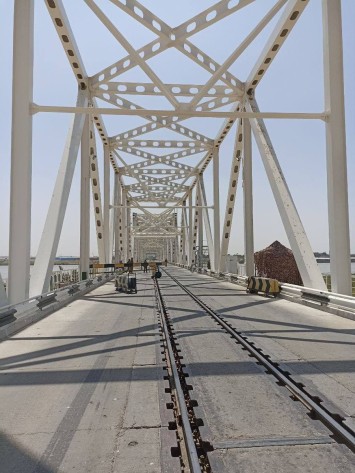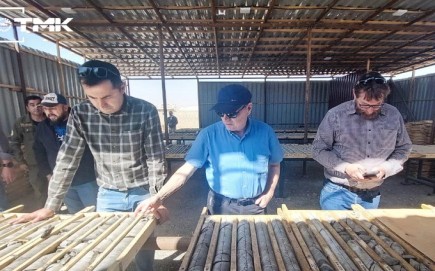Portfolio Manager at Fusion Wealth Management (Hong Kong) Michael McGoughy called the deal on the privatization of Kyzylkumcement listed on the Republican Stock Exchange as non-transparent. He wrote about this on his page in Linkedin.
“This is a not a good way to begin a new year. After last Fall's Tashkent investor forum, I really had high hopes for Uzbekistan, but a deal like this calls into question its privatization/reform program. Below are some thoughts.”
“FYI – the fund I work for - and myself personally - have been investors in Qizulqum Cement since early 2018. Uzbekistan is our fund’s largest country exposure. In short, I have ‘skin-in-the-game’. - The 20% discount to the going market price doesn’t make sense (i.e. UZS 4,859 vs end 2021 at UZS6,500). Being able to control a firm is worth a lot. This is why take overs like this usually happen at much higher prices than the price quoted/traded. It’s the opposite here. The acquiring firm is getting a huge discount to Qizulqum’s listed price.
- This calls into question UzSAMA’s motivations. Why would they approve a deal so far below the listed price? - Even the listed price was low. At its year end UZS6,500 closing price, QZSM was trading at EV/ton of capacity of USD65. This is less than one-half the USD150-200 per ton for new plants.
- Little transparency. The sale came as a complete surprise to me and other investors I talked to. I’ve not heard of a formal tendering or sale process for Qizulqum, just that the government’s stake was for sale. Supposedly Turkish, Pakistani, Russian and Chinese firms are interested to buy a controlling stake at higher than market prices. The lack of transparency is very surprising given how above board the Uzbek Coca-Cola sale was.
- Bad precedent for market and future privatizations. Market price has no meaning if such a discount is given behind closed doors. Why even bother with the official tendering process?
- Delloite's approval doesn’t mean much to me. Auditors / consultants will sign off on a deal just to get more business down the road. This is like the US credit ratings agencies/companies did with the subprime derivatives up until they blew up and led to the GFC.
- Anti-competitive. After the deal, the new owners will control over 50% of Uzbekistan's cement capacity. This also does not make sense. A large number of producers will help spur competition and provide competitive prices. Cement is crucial to a developing country. It's price should be reasonable. No one firm should control so much of the market for a necessary development material.
- Reassessing country risk and reputation. Since my November 2017 trip to Tashkent, I’ve been telling a lot of fellow investors about the positive changes taking place in Uzbekistan. There are a lot of smart people in Uzbekistan. I'm a fan. But this deal makes me think I may have wrong in my assessment and cheerleading.”
On December 23, the investment company UzAssets under the UzSAMA announced that it was preparing for the privatization of the cement plant and closing the call for bids. A stock operator said that there was no announcement of the launch of bids.
On December 31, UzAssets reported that the state stake in Kyzylkumcement JSC (86.92%) is being sold to the United Cement Group (UCG) for 1.89 trillion soums ($174.7 million at the exchange rate of the Central Bank). Deloitte, a consulting company, acted as a financial advisor to the transaction, which also provided support in the preparation of the sale agreement. The valuation of the state block of shares was carried out by Grant Thornton, additional legal support was provided by Dentons.
UzAssets noted that the value of the transaction "significantly exceeds the level of recent similar transactions in the industry."
UCG, registered in Cyprus, previously owned three cement plants in Central Asia: two in Uzbekistan (Kuvasaycement and Bekabadcement) and one in Kyrgyzstan (Kant Cement Plant). The Group also has a number of other major assets in Uzbekistan, Kazakhstan, Kyrgyzstan and Russia.





